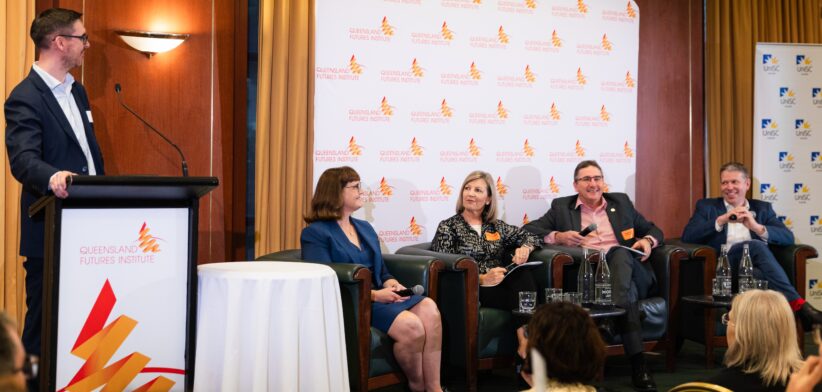Artificial Intelligence (AI) is changing the way universities assess student suitability for certain courses.
Speaking at a Queensland Futures Institute industry breakfast in Brisbane this week, leading education providers discussed the impact of AI on the sector.
Griffith University Vice-Chancellor Carolyn Evans said society needed to accept AI would become more integrated in all aspects of our lives.
Professor Evans said, in response, education providers needed to place an increased focus on training people with personal skills.
“(For example) there are going to be tools, not just AI, but a range of tools that will be better at diagnosing many diseases than all but the most competent specialists in their field,” she said.
She said this meant we needed to make sure that doctors had human skills as well as diagnostic skills.
“I’d be perfectly happy if we one day get to a point where a computer checked me out.
“But I’d actually want a human being with empathy, who knew me, who understood my culture and background, to be there if it was bad news (and) articulate it in a way that I would understand, and to support me through a health journey.”
She said that was why Griffith University now didn’t just select their medical students based on high ATARs or high scores in medical testing.
“We also interview them (and) we also make sure that they engage with real human beings right throughout their degree so they don’t, as an AI tool, just see, people as collections of diseases and symptoms, but see people as human beings.”
University of the Sunshine Coast Vice-Chancellor Helen Bartlett said teaching critical thinking was also important in a world dominated with AI.
Professor Bartlett said there was no point in talking about restricting AI’s use.
“AI is out there. (Students) have it and they are using it.
“We’ve got to help them develop the critical thinking skills that will enable them to use it appropriately.”
She said this needed to be complemented by a discussion on policy and ethics in the use of AI.
“(This will) ensure it’s the right thing to use, in the right place at the right time.”
Professor Bartlett said finding the right approach was important as industry was going to need everybody to have basic AI literacy.
“As a university, we have to make sure our students have that literacy.”
Independent Schools Queensland CEO Chris Mountford said work was being done on how AI could best support teachers in the classroom.
Mr Mountford said the organisation was looking at the development of a lesson planning tool for teachers.
“(One) that’s effective, saves them time, and doesn’t cut their expertise out of the mix.”
He said it would be a tool to ensure teachers could think about what they were delivering and differentiate for particular students in the class.
“(And) you could certainly see in three, five, 10 years’ time personalized digital tutors for students, that would make a difference as well.”








